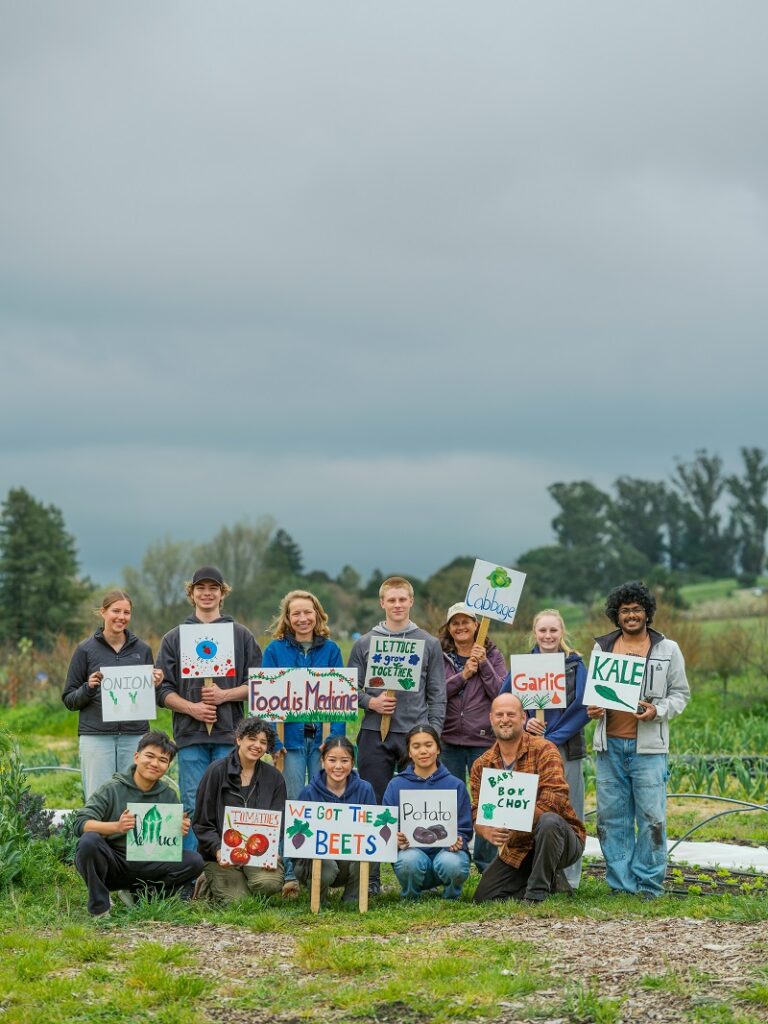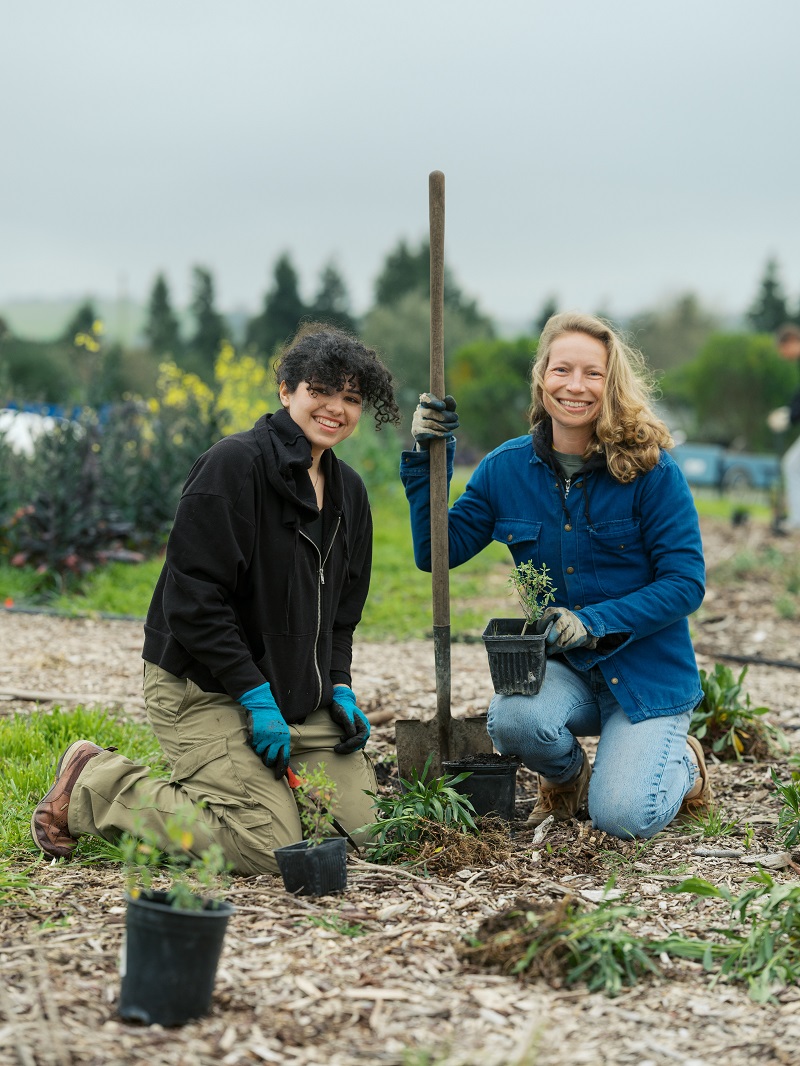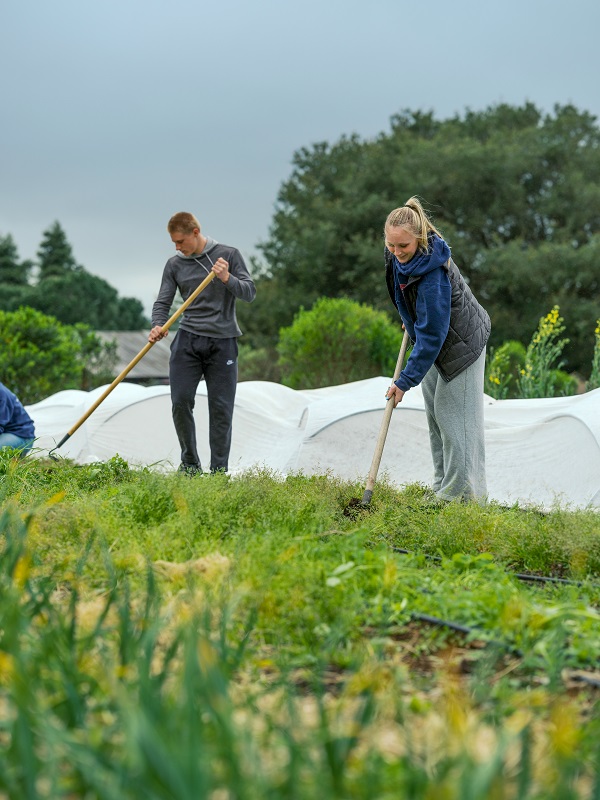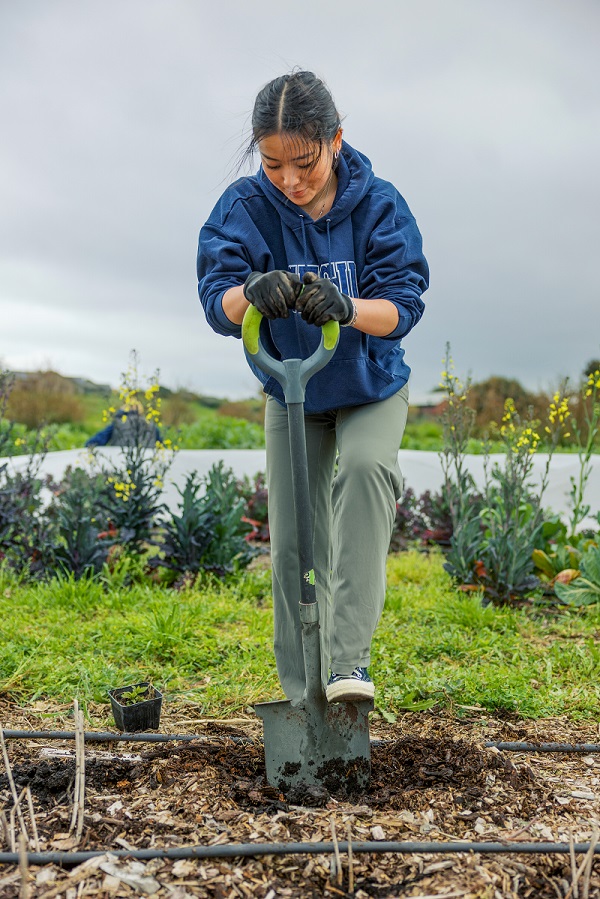Ceres Community Project Delivers Nourishment
Photos by Paige Green
Food is medicine. Instinctively, that statement makes a lot of sense. It’s easy to see that if one eats well, then one has more energy, avoids illness, and feels well, both physically and mentally.
Sebastopol’s Ceres Community Project takes the “food is medicine” concept and puts it into practice by providing 100% organic, locally sourced, and medically tailored meals to clients facing serious health challenges throughout Sonoma and Marin counties.
For people undergoing treatment for conditions including cancer, diabetes, or another acute illness, the meals are intended to nourish both body and soul. Each of Ceres’ clients receives a weekly delivery of healthy, organic meals for up to 24 weeks, at no or low-cost. The meal deliveries are dropped off by volunteers known by clients as “Delivery Angels” and are accompanied by a hand-written note and often a bundle of flowers from one of Ceres’ two organic gardens.
Cuisine for a Cause
The Ceres Community Project began in 2007 when founder and CEO Cathryn Couch, then working as a private chef, was asked by a friend to teach her daughter how to cook. Their lessons quickly turned into a calling as they began preparing nutritious meals for three local families facing serious illnesses.
That first year Ceres prepared and delivered 4,500 meals with assistance from 21 volunteers. In the ensuing 18 years, the team kept growing, stepping up to respond to ever increasing need. Along the way, the organization developed relationships with hospitals and healthcare systems that recognize that proper nutrition shortens recovery time, reduces hospital stays, increases effectiveness of medication, and ultimately, saves money. Fast forward to 2024, when Ceres prepared and delivered a whopping 226,432 meals to 1,489 clients.
Food from Ceres is made with love and according to the patient’s nutritional needs by a team of professional chefs and over 700 adult volunteers and 300 youth volunteers. Many of the clients are low-income and seniors, but meals are also delivered to a wide range of clients. Some patients insured through Medi-Cal can receive a referral for meals paid for by their plan.
Deborah Ramelli, Ceres’ director of development and community affairs, shared an example of a family with young children and a parent undergoing cancer treatment. Maintaining weight can be challenging for patients, so Ceres’ registered dietitian nutritionists create tailored meal plans. Additionally, the organization provides meals for family members, easing stress and ensuring that everyone stays nourished. It can even promote lifestyle changes to maintain clients’ health into the future.
Ceres was able to provide healthy food for people in emergency shelters during the 2017 wildfires. Similarly, demand soared during the pandemic.
“During the pandemic, we increased meal delivery suddenly and exponentially in response to demand from medical professionals and individuals whose illnesses put them at high COVID risk,” explains Ramelli.
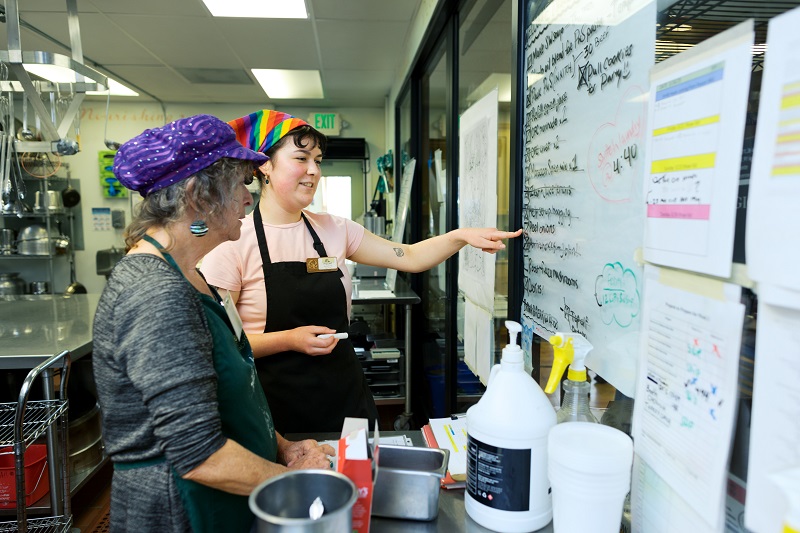
Sharing the Love
Ceres is now increasing its capacity in a big way, with a new 19,611-square-foot headquarters under construction in southwest Santa Rosa. The solar-powered building, which broke ground in September of 2024, will feature a fully electric kitchen with a back-up battery micro-grid for emergency power.
“We were stretched out between offices and kitchens in Sebastopol and Novato, which hampered our efficiency and ultimately limited our ability to meet our clients’ needs,” Ramelli says. “The new campus will feature a large production kitchen, a client resource center, teaching kitchen, garden, community spaces and offices.”
Compassion and heartfelt care are key to Ceres’ mission and contribute widely to the organization’s success. But the program serves more than just the clients. The new building is near six area high schools, giving teen volunteers who are integral to the program easy access to the kitchen and gardens after school. Teens in the Ceres Youth Development Program learn how to grow, cook, and eat healthy food. They also learn leadership skills, how to be a real-world team member, and the rewards of giving back. But an important life lesson for the teen volunteers is the influence of the food itself.
“We found that teens’ dietary preferences are influenced not so much from someone telling them how to eat but rather in understanding the environmental and societal impacts of their choices,” shares Couch, adding, “The Youth Development Program allows them to witness the difference a nourishing diet makes to overall health, with lifelong results.”
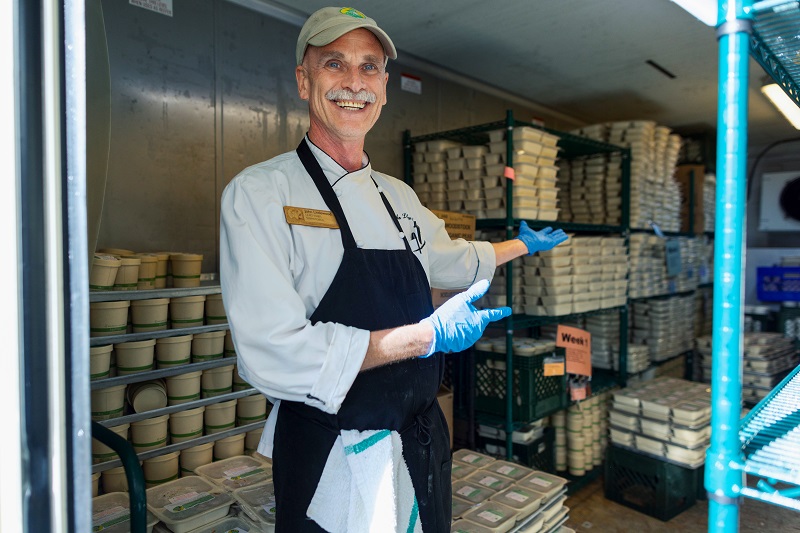
The teens are also instrumental in the success of Ceres’ two organic gardens, including the original garden in Sebastopol and a new 2-acre Ceres Community Project at Live Oak Farm in Petaluma. Students take part in all aspects of growing food and flowers used in Ceres meals. A visitor to the Petaluma garden might find a group of high schoolers mulching, weeding, transplanting, and learning about drip irrigation from farm manager Noah Wolf-Prusan.
“It’s a really great mission,” says Rachel Chen, a senior at Cardinal Newman, who shared that she learned of Ceres when she saw senior project reports that piqued her interest. “People learn about ecological systems that they wouldn’t otherwise. We learn about health practices like organic food, sustainability, and important life skills like how to garden.” She’s following suit for her own senior project and adds, “I’m hoping to have a garden when I grow up and try to eat locally and organic.”
Volunteer Lee Hill, a retired elementary school teacher, enjoys the team spirit, “My volunteer job is to load client meal bags into the Delivery Angels’ vehicles, so I get to interact with the kitchen staff and volunteers,” she says. “I love the camaraderie. It feels really good to be a part of something that supports healthy food for those who need it.”
Benefitting Local Farms
Despite assumptions that the gardens produce a significant quantity of the food used in Ceres’ meals, the 13,000 pounds of produce and 3,000 flower bouquets produced last year are just a drop in the bucket. Ceres purchased $600,000 of organic food in 2024 and 66% of that was produced within 250 miles, supporting 111 local farms.
Ceres’ commitment to local and organic food directly benefits small Sonoma County farms. There is still much work ahead to ensure that everyone has access to the healthy food they need to thrive and to permanently connect the dots between food and health. As the “food is medicine” movement grows, Ceres Community Project stands as a leader in system-level changes, and in the firm belief that compassion and love can help regain and maintain health.
Ceres Community Project
ceresproject.org
PO Box 1562 Sebastopol, CA 95473
info@ceresproject.org
(707) 829-5833
To volunteer: volunteer@ceresproject.org
To receive meals or refer patients: clientcareteam@ceresproject.org
(707) 829-5833 Ext. 201
For classes: education@ceresproject.org

